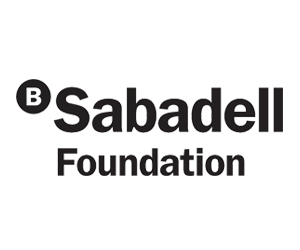
Project overview
ENGUT was awarded a BIST Ignite Grant in March 2018 and one of the three BIST Ignite Awards 2019.
Epithelial barriers, such as the intestinal epithelium, protect the body against external attacks. Functional in vitro models of intestinal epithelium have been pursued for a long time. They are key elements in basic research, disease modelling, drug discovery, and tissue replacing and have become prime models for adult stem cell research. By taking advantage of the self-organizing properties of intestinal stem cells, intestinal organoids have been recently established, showing cell renewal’s kinetics resembling the one found in vivo. However, the development of in vitro 3D tissue equivalents accounting for the dimensions, architecture and access to the luminal contents of the in vivo human intestinal tissue together with its self-renewal properties and cell complexity, remains a challenge.
The goal of ENGUT is to engineer intestinal epithelial tissue models that mimic physiological characteristics found in in vivo human intestinal tissue, to open up new areas of research in human intestinal diseases. The proposed models will address the in vivo intestinal epithelial cell renewal and migration, the multicell-type differentiation and the epithelial cell interactions with the underlying basement membrane while providing access to the luminal content to go beyond the state-of-the-art organoid models. To do this, we propose to develop an experimental setup that combines microfabrication techniques, tissue engineering components, recent advances in intestinal stem cell research, and cutting-edge microscopy techniques. We expect the new device to prove useful in understanding cell physiology, adult stem cell behaviour, and organ development, as well as in modelling human intestinal diseases.
Multidisciplinarity within ENGUT
The success of the ENGUT project heavily relies on the effective integration of multiple core-disciplines. The ENGUT proposal combines engineering microfabrication technologies such as photolithography and microfluidics, tissue engineering concepts (scaffolds and bioreactors), recent advances in stem cell research (organoids) and cutting-edge microscopy techniques (customized light sheet imaging) to produce artificial tissue surrogates that will go beyond current 3D in vitro models. The teams involved in ENGUT are already multidisciplinary in nature, as their members have scientific backgrounds in physics, biology and molecular biology.
Progress: updated abstract as of December 2018
In ENGUT we have combined the expertise of two BIST partners (IBEC, ICFO) in the field of bioengineering and microscopy towards the development of intestinal tissue surrogates that provide unprecedented tissue-like functionality: multicellular composition, barrier function and cell renewal properties. These in vitro models might be used in (i) basic research, (ii) disease modelling, (iii) drug discovery, and (iv) regenerative and personalized medicine. In the BIST Ignite Seeding stage, we have delivered a new setup that allows monitoring the growth of intestinal epithelial cells under controlled microfluidic environments, meaning organ-on-chip devices, by liveimaging techniques. For that purpose, a new light-sheet microscope instrument, microfluidic devices, sample mounting protocols, and image analysis protocols have been developed. The setup built is unique and would allow tracing stem cell behaviour in well-defined microenvironments, providing data which cannot be accessed with current in vitro or animal models.
Project members

Elena Martínez
Group Leader at IBEC

Emilio J. Gualda
Postdoctoral Researcher at ICFO

Eduard Battle
ICREA Research Professor and Group Leader at IRB Barcelona

Gizem Altay
Postdoctoral Researcher at IBEC

Enara Larrañaga
PhD Student at IBEC

Vanesa Fernández
Senior Researcher at IBEC

Pablo Loza
Group Leader at ICFO

Jordi Andilla
Staff Scientist at ICFO

Matteo Bernardello
PhD Student at ICFO













